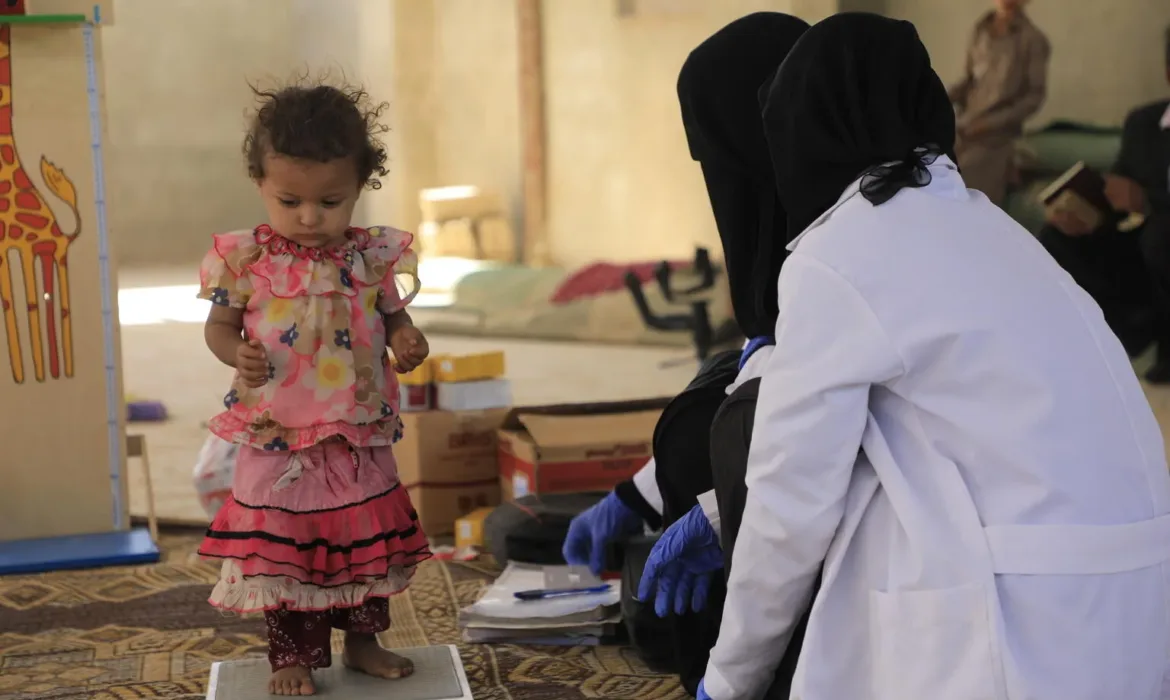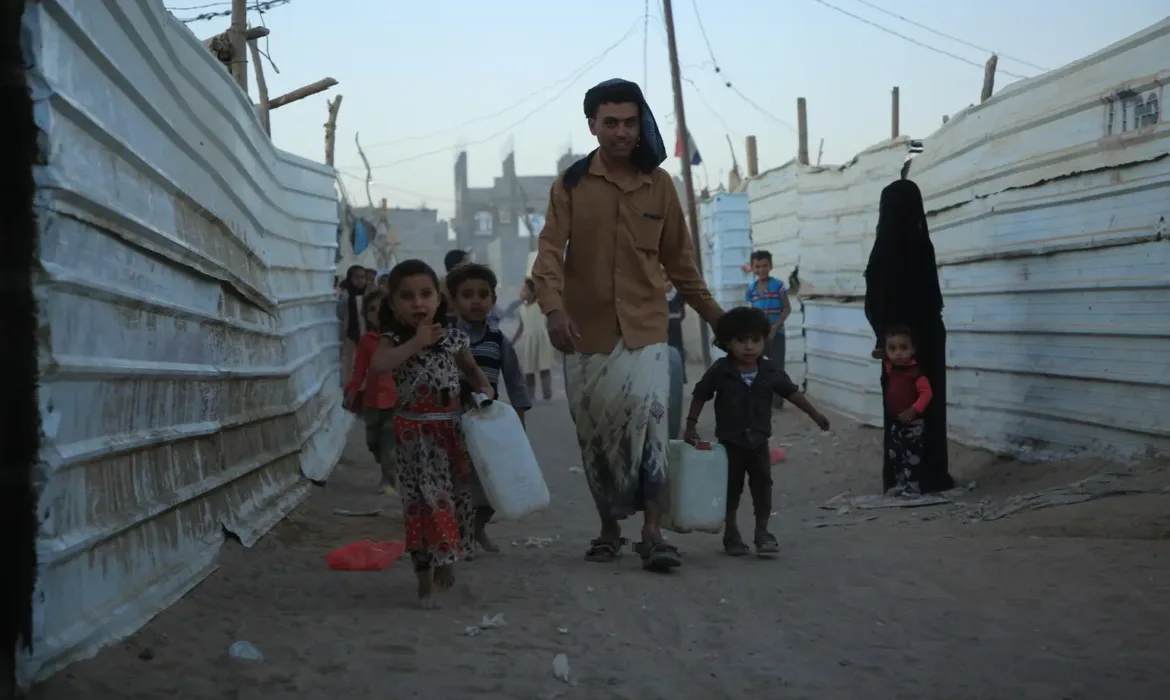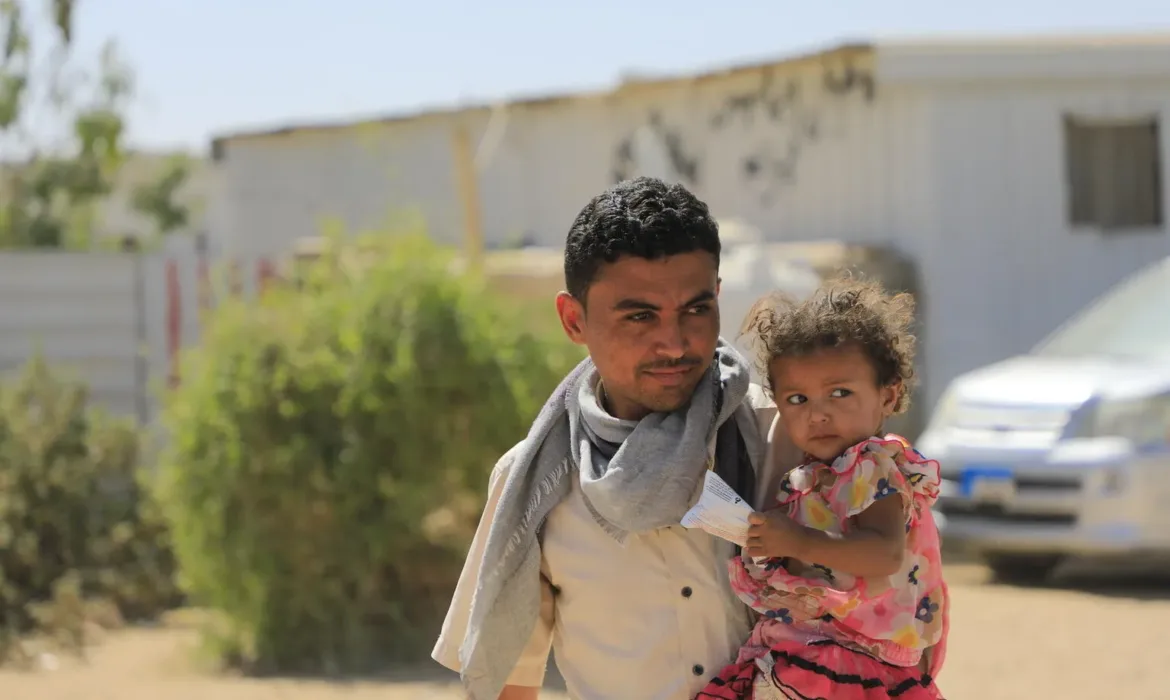
Family life at a camp in Yemen
UNICEF IN YEMEN
UNICEF began working in Yemen in the 1970s, to support children in what was the poorest country in the Middle East. Yemen was making steady progress for children until conflict began in 2015.
UNICEF immediately rallied to provide emergency support for children affected by war, alongside the long-term health, education, and child protection work. UNICEF supports children across Yemen and has a strong presence at the camps, supporting displaced families with clean water, education, and health care.
Currently the war in Ukraine is intensifying challenges in Yemen. Shortages of affordable fuel make it more costly to transport people and supplies. Lack of fuel makes it difficult to power generators, threatening the supply of clean water and provision of medical facilities. Yemen depends almost entirely on food imports with 30% of its wheat coming from Ukraine. As a result, soaring food prices place even greater pressures on families.
AWAY FROM HOME
Intense fighting forced Waleed Al-Ahdal and his family to flee from their home in west Yemen. Now they live in Al-Jufainah Camp for displaced people – home to 9,000 families trying to make life as normal as possible for their children.
DIFFICULT CHOICES
The ongoing conflict has led to extreme food shortages and loss of family income. Waleed explains how he has only sporadic temporary work. He must make difficult choices on which necessities to spend his wages on.
Waleed recalls how tough it was to observe Ramadan, one of the most important months for Muslims where they fast from sunrise to just before sunset; and celebrate Eid, including breaking fast with a feast, wearing your best clothes, giving children gifts and giving to the poor. He simply couldn’t show his young children how he observed Ramadan and celebrated Eid growing up. “Now I struggle to provide the basics to my family.”
Eight years of conflict have disrupted the services that families rely on – like clean water, education, and health care.
THOSE MOST AT RISK
Earlier this year, Waleed’s 16-month-old daughter Ghosoon became severely malnourished. The visiting health team referred her to a health centre for treatment. UNICEF is supporting the health centre and other children’s health services.
MOBILE CARE
The mobile health team visits 12 locations, spending a day at each in rotation.
Health worker Mohammed Abdul-raqeeb Damaj Haiel explains, “the children’s health programme includes immunisation, nutrition, and health care services. They are effective because we provide these services at the same time.”
Waleed takes Ghosoon for check-ups as she continues to get well. One day he hopes, “we will live in peace”. Back in his hometown, with a house and an income. A future for his children. So that Ramadan will have its shine again.
WE KNOW HOW MUCH MORE MUST BE DONE
UNICEF knows that reliable data about children’s situations is critical to improving their lives. Our central Data and Analytics Team are the global go-to for data on children.
We know that in Yemen:
- There are 2 million children displaced like Waleed’s
- And 11.3 million children in need of humanitarian assistance
Our in-country teams draw on this support in gathering information about the situation for children. And we monitor our results:
- In 2021 we helped more than 560,000 children receive quality learning in schools
- Reached almost 500,000 vulnerable, displaced people with kits, including food and hygiene items
- We vaccinated more than 3.8 million children under 5 against polio.
Gifts made in Wills support all our work, from building a data powerhouse to working every day on the ground for children.







